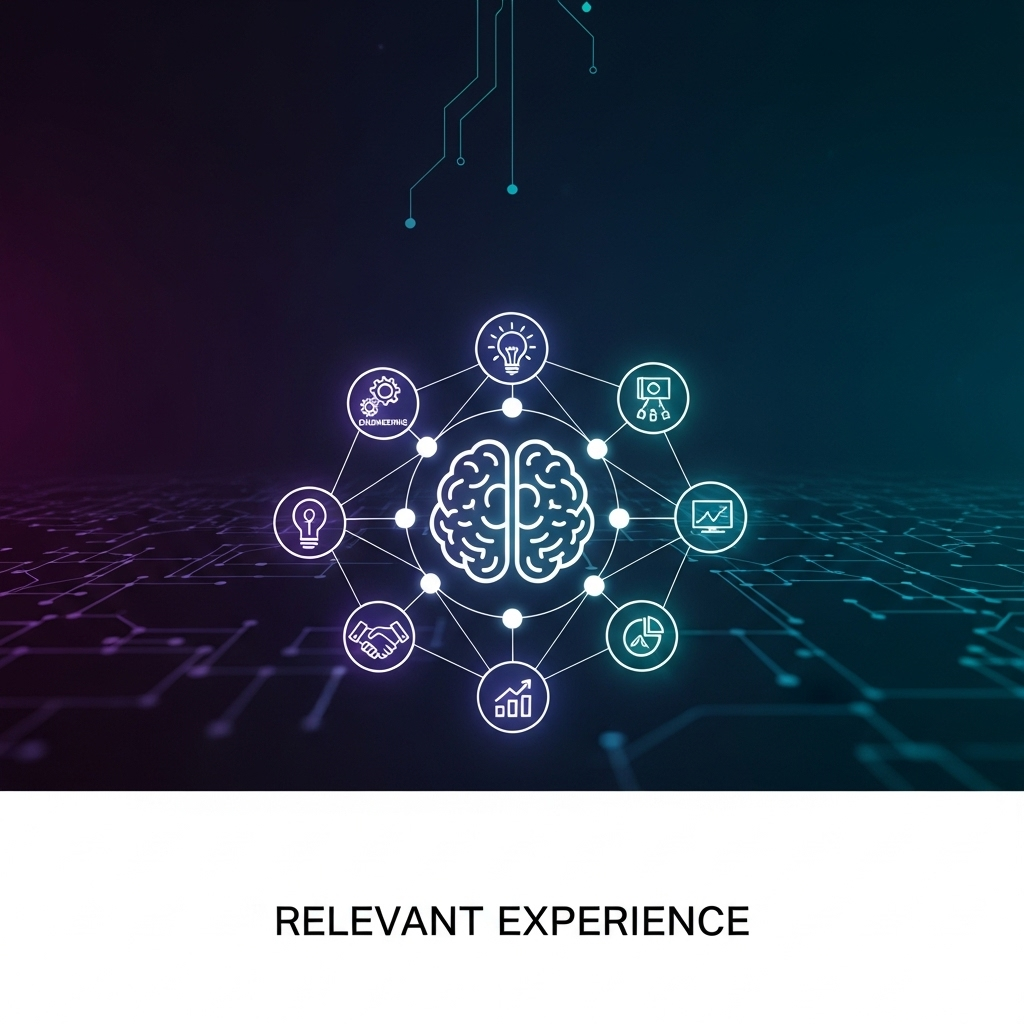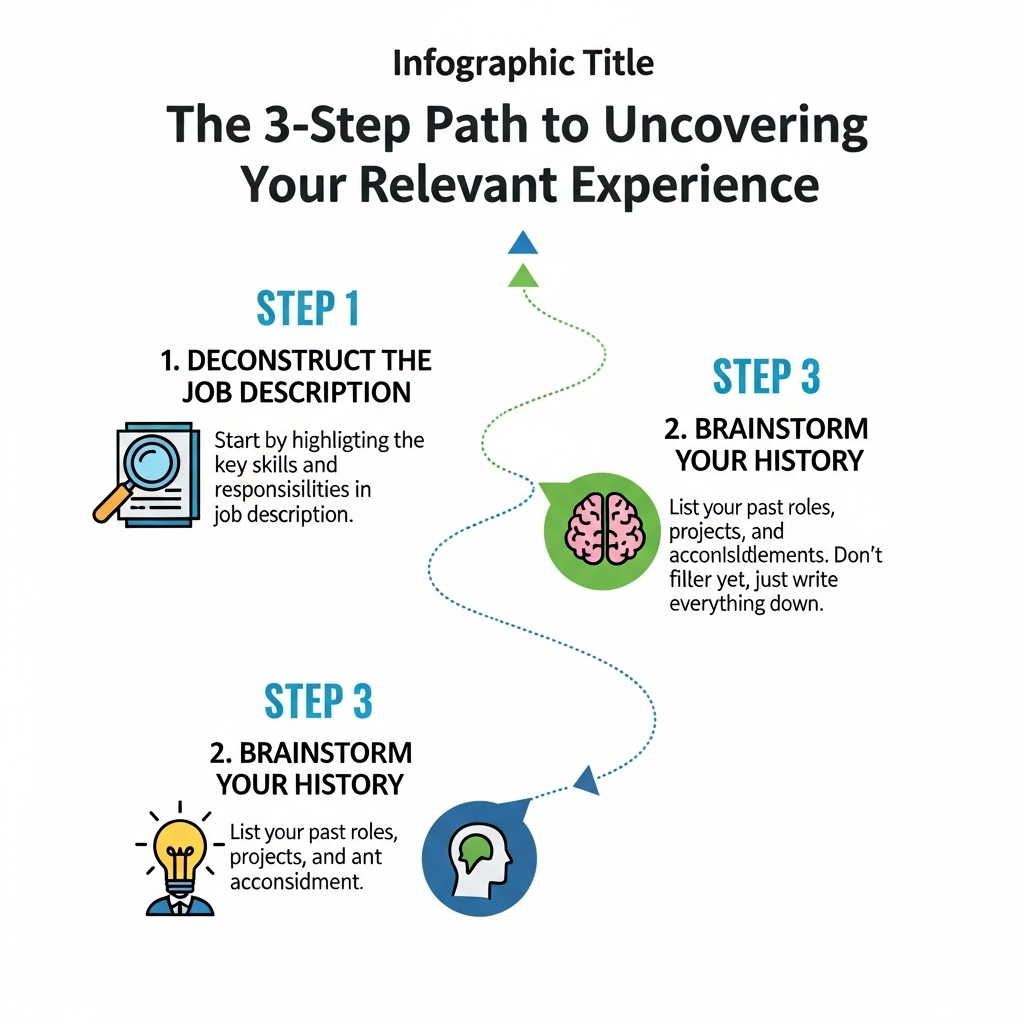What is Relevant Experience? A 5-Step Guide to Impress Recruiters

What is Relevant Experience? A 5-Step Guide to Impress Recruiters
Meta Description: Struggling to show your relevant experience? This guide provides a 5-step process to identify and showcase your skills, beat the ATS, and land more interviews. Unlock your potential today!
Your Ultimate Guide to Understanding and Showcasing Relevant Experience
Ever read a job description and thought, "I can do this," but struggled to prove it on your resume? You're not alone. The concept of 'relevant experience' can feel like a gatekeeper, especially when you're changing careers or just starting out. This guide cuts through the confusion. We'll provide a definitive, step-by-step framework to not only identify your relevant experience but also to articulate it in a way that captivates recruiters and satisfies the automated systems that stand between you and your next job.
What Exactly is Relevant Experience?
Relevant experience is any skill or knowledge gained from past work, academic projects, or life activities that directly applies to the requirements of the job you are targeting. It's not just about having held the same job title before. It's about possessing the transferable abilities and direct expertise needed to succeed in the new role.
Hiring managers are looking for proof that you can step into the role and start creating value with minimal hand-holding. In fact, nearly 98% of Fortune 500 companies use Applicant Tracking Systems (ATS) to filter candidates, and "relevant experience" is the primary criterion these systems are programmed to find. Jobscan study on ATS usage in Fortune 500 companies.
Two Core Types of Relevant Experience
| Type of Experience | Description | Example |
|---|---|---|
| Direct Experience | Work performed that is nearly identical to the duties of the job you're applying for. | Applying for a Senior Accountant role when you have been an Accountant for 5 years. |
| Transferable Experience | Skills and abilities you've acquired in one context (like a different industry or a non-work setting) that can be applied to another. | A retail manager applying for a customer success role, highlighting their experience with conflict resolution, team leadership, and managing customer satisfaction. |
How to Identify Your Relevant Experience: A 5-Step Process
Follow these steps to systematically uncover and map your experience to your target job.
1. Deconstruct the Job Description
Print out the job description or copy it into a document. Go through it line by line and highlight every skill, responsibility, and qualification mentioned. Group them into "must-haves" and "nice-to-haves."
2. Brainstorm Your Entire History
Open a blank document and list everything you've done. Don't filter yourself. Include:
- Full-time and part-time jobs
- Internships and apprenticeships
- Volunteer roles
- Freelance projects
- University coursework and major projects
- Leadership roles in clubs or organizations
- Personal projects or hobbies (if applicable)
3. Map Your History to the Job's Needs
For each highlighted requirement from Step 1, find an instance in your history from Step 2 where you demonstrated that skill. This is the crucial connection. Think broadly—your "project management" experience might have come from organizing a university event, not from a formal PM role.
4. Quantify Your Accomplishments
Once you've mapped a skill, add metrics to it. Numbers are the most powerful way to show impact. Instead of saying you "managed a social media account," say you "Grew a social media account by 300% over 6 months by implementing a new content strategy."
5. Tailor Your Resume with Keywords
Your resume is not a biography; it's a marketing document. For each application, you must refine your resume to feature the most relevant experience you identified in the previous steps. Use the exact keywords and phrases from the job description.
To ensure your resume perfectly highlights your relevant experience for every application, use JobSeekerTools to analyze the job description and optimize your resume in seconds, guaranteeing you get past the ATS and into human hands.
How to Write About Relevant Experience: Before and After
Vague statements get ignored. Specific, quantified achievements get you interviews.
| Vague Statement (Before) | Specific & Relevant (After) |
|---|---|
| Responsible for email marketing. | Increased email open rates by 25% and click-through rates by 15% by developing and executing A/B tested campaigns for a 50,000-subscriber list. |
| Worked with customers. | Resolved an average of 30+ customer tickets daily, maintaining a 95% customer satisfaction score (CSAT) over two years. |
Do's and Don'ts for Showcasing Experience
- Do: Use strong action verbs to start each bullet point.
- Do: Focus on the last 10-15 years of experience.
- Don't: Include experience that has no connection to the target job.
- Don't: Lie or exaggerate your accomplishments.
Conclusion: Your Experience is Your Story
Relevant experience is not about having the perfect background; it's about telling the right story. By systematically analyzing the role, digging into your past, and quantifying your impact, you can build a compelling case for why you are the best candidate. Treat your resume as a targeted solution to the company's problem, and you will transform your job search.
Key Resources & Visual Guides
The 3-Step Path to Uncovering Your Relevant Experience

Step 1: Deconstruct the Job Description
- Start by highlighting the key skills and responsibilities in your target job description
- Identify must-have vs nice-to-have requirements
- Note specific keywords and technical terms
Step 2: Brainstorm Your History
- List your past roles, projects, and accomplishments
- Don't filter yet, just write everything down
- Include volunteer work, side projects, and academic achievements
Step 3: Map Your Experience
- Draw lines connecting your brainstormed list to the highlighted keywords from the job description
- These connections are your relevant experience!
- Quantify each achievement with specific metrics
Now, tailor your resume with these powerful, relevant points!
The Ultimate Relevant Experience Checklist
Use this comprehensive checklist when adding relevant experience to your resume:
Before Writing:
- Analyzed the job description thoroughly
- Identified key skills and requirements
- Brainstormed all relevant experiences
Writing Your Experience:
- Used action verbs to start each bullet point
- Quantified achievements with numbers/percentages
- Included relevant keywords from job description
- Focused on results and impact, not just duties
Quality Check:
- Each bullet point passes the "So what?" test
- Experience is tailored to specific job
- Removed irrelevant experiences
- Proofread for grammar and consistency
ATS Optimization:
- Used standard job titles and industry terms
- Avoided graphics, tables, or special formatting
- Included both acronyms and full terms
- Saved in ATS-friendly format (.docx or .pdf)
Frequently Asked Questions
1. What if I have no direct work experience for the role I want? Focus on transferable skills. Break down the target role into its core competencies (e.g., communication, data analysis, project coordination) and demonstrate where you've built those skills through academic projects, volunteer work, or part-time jobs.
2. How far back should my relevant experience go on a resume? The standard is to go back about 10-15 years. If your most relevant experience is older than that, you can consider adding a "Prior Relevant Experience" section with a brief summary instead of fully detailed entries.
3. Should I include experience that isn't 'relevant'? Generally, no. Every line on your resume should serve the purpose of getting you the interview for this specific job. If an experience doesn't support that goal, it's taking up valuable space. The only exception is if removing it would create a large, unexplained gap in your employment history.